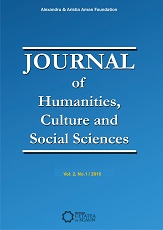The philosophical conceptions in the antic Rome and their influences on the evolution of personality
The philosophical conceptions in the antic Rome and their influences on the evolution of personality
Author(s): Antoaneta Laura SavaSubject(s): History, Philosophy, Social Sciences
Published by: Alexandru and Aristia Aman Foundation
Keywords: dignity. virtue. law. philosophy. human being.
Summary/Abstract: Although never amounted to the subtlety and depth of the Greeks, the Roman thinking, as well as diplomacy, being dominated by rigidity, lack of imagination and excessive formalism, the Roman philosophers have their role in shaping the concept of human dignity. This notion has been used since the early stage of Roman city foundation, its meaning being either of quality related to a high status occupied by the individual, or of moral virtue. According to Cicero's philosophy, dignity is based on the human capacity to reason, to be above its own sensuality, emotions, impulses, on self control and on the fact that man leads the world and the rest of the animals. Seneca believes that the supreme moral value of man is virtue, philosophy is the pursuit of virtue, for straightening spirit, and the two concepts - virtue and philosophy - can not exist one without the other. For Ulpian, the will to carry out justice, to give every man what is his, came from a rational source of a man convinced of the ideal of moral good. Ulpian has also determined law's precepts as: honeste vivere (a decent living), alterum non laedere (not to hurt anyone), suum cuique tribuere (to give everyone what is his). In the conception of Gaius, the law of nations was established by natural reason, belonging equally to all citizens. Ancient Roman philosophy is characterized by the analysis of two moral qualities that man has - reason and virtue, values which characterize the concept of human dignity.
Journal: Journal of Humanities, Culture and Social Sciences
- Issue Year: 2/2016
- Issue No: 01
- Page Range: 101-108
- Page Count: 8
- Language: English

